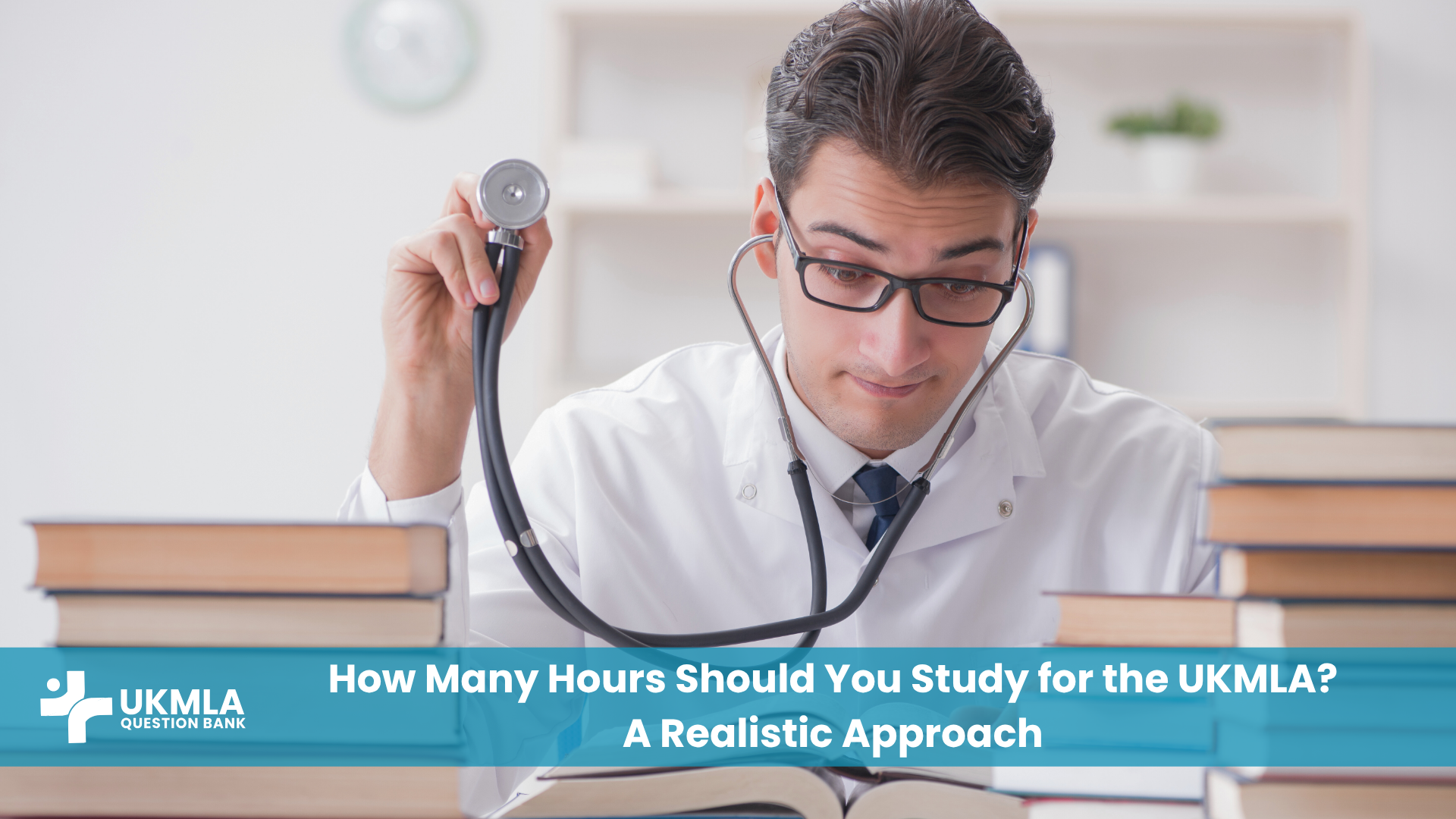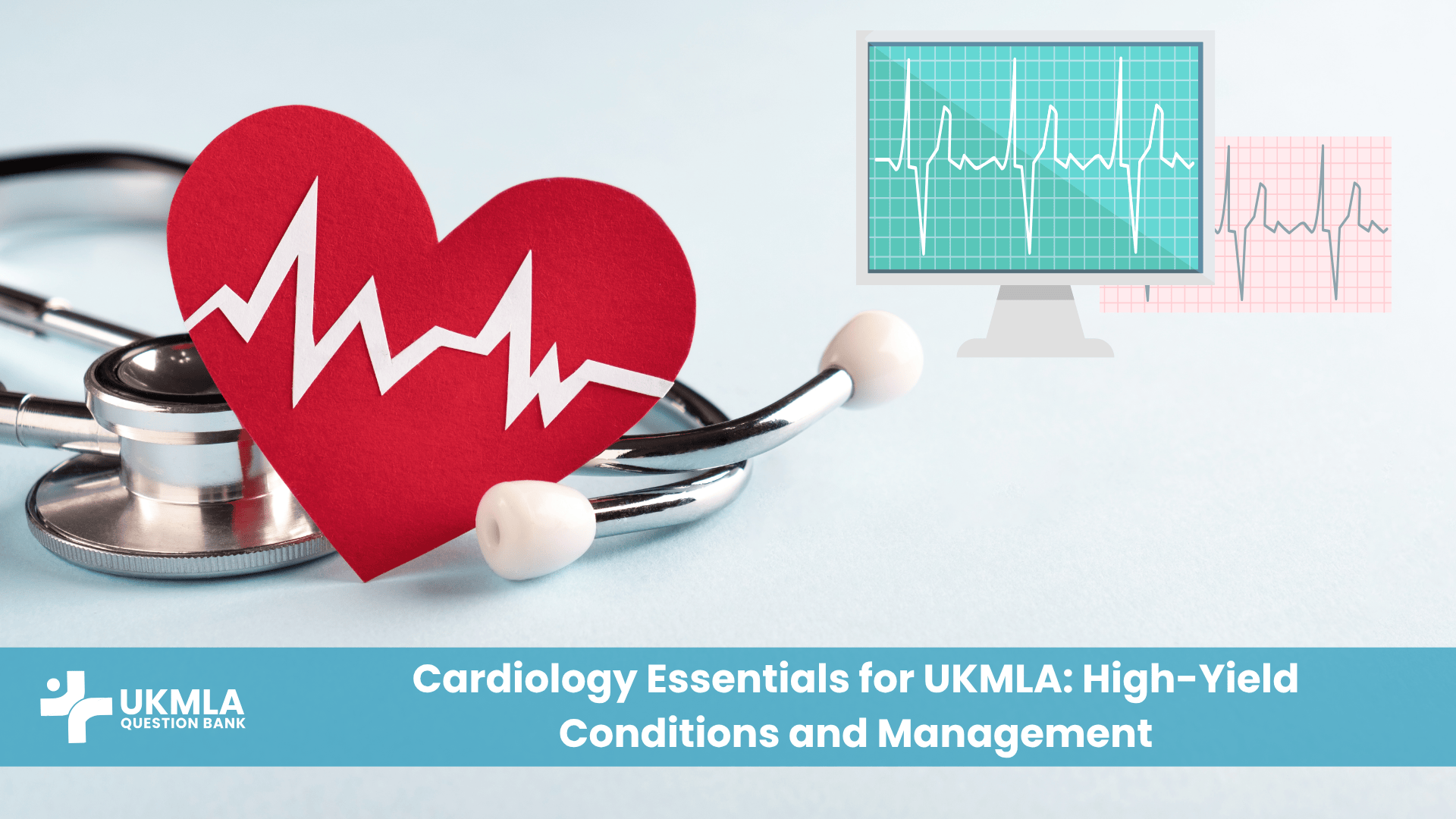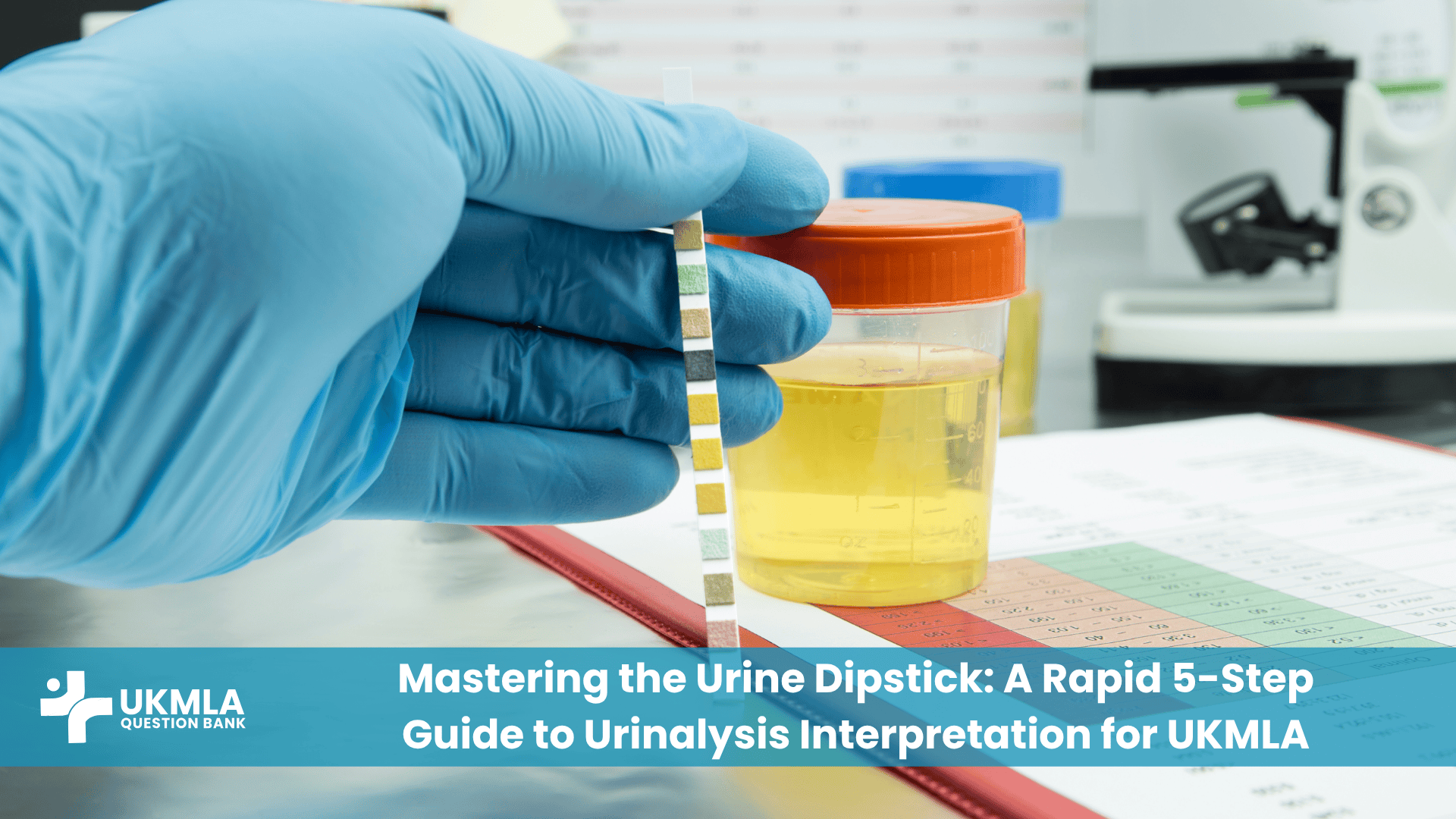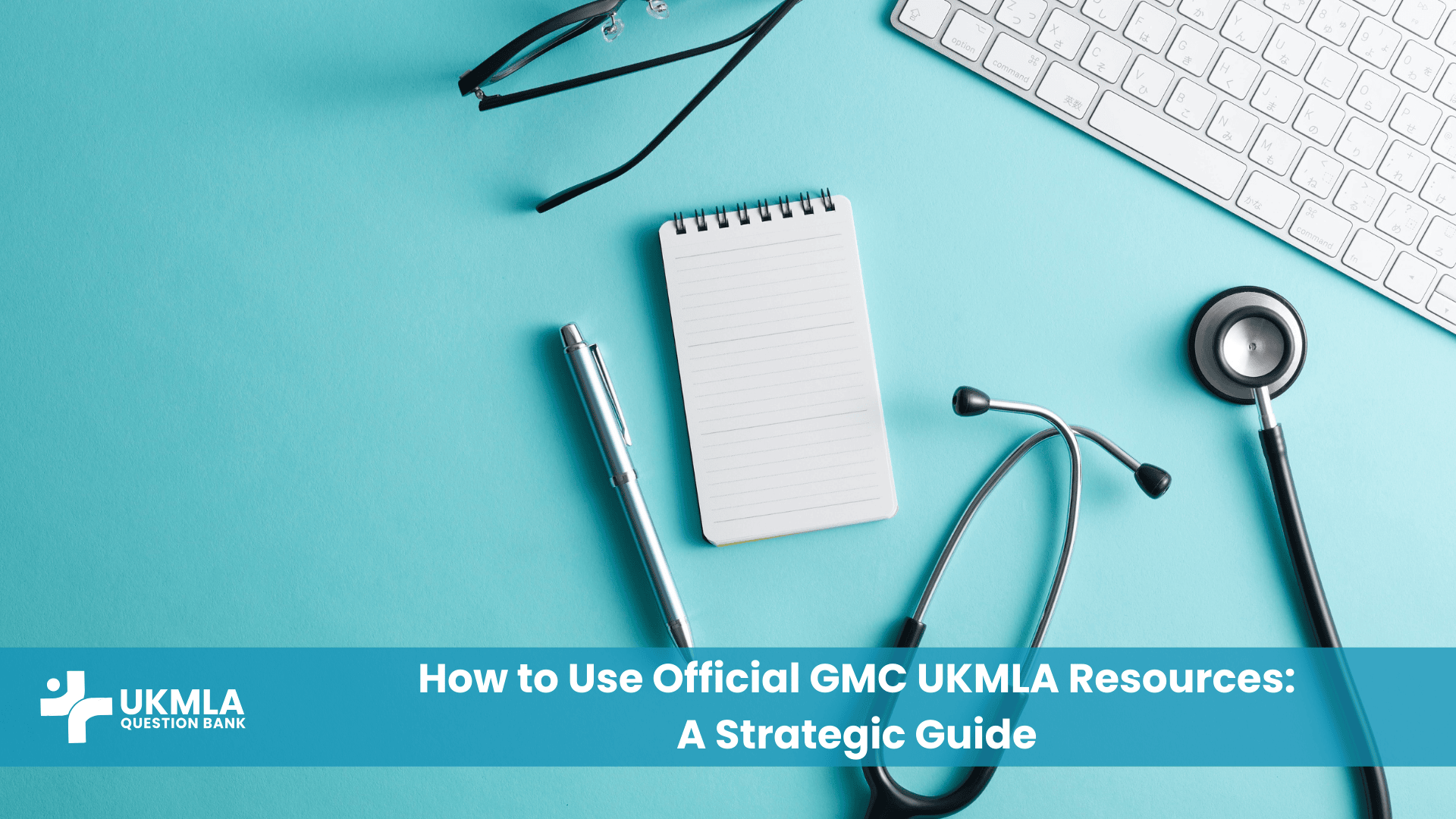One of the most pressing questions for any candidate preparing for the UK Medical Licensing Assessment (UKMLA) is: “How many hours should I study?” It’s a natural query, as aspirants try to gauge the commitment required for this high-stakes exam. While there’s no magic number of UKMLA study hours that guarantees success for everyone, understanding the factors that influence study time and adopting a realistic approach can make your preparation more effective and less stressful.
This comprehensive guide aims to explore the question of UKMLA study hours from various angles. We’ll discuss what influences the required time, how to estimate your needs, and why quality of study often trumps sheer quantity. Whether you’re a UK medical student integrating UKMLA prep with your degree or an International Medical Graduate (IMG) focusing solely on the exam, this article will help you develop a sensible perspective on your study commitment.
Why There’s No One-Size-Fits-All Answer to UKMLA Study Hours
The ideal number of UKMLA study hours is highly individual and depends on a multitude of factors:
Your Baseline Knowledge and Experience:
Recent Graduates vs. Experienced Doctors: IMGs who have been out of medical school for some time or whose practice has been focused on a narrow specialty might need more hours to refresh foundational knowledge compared to recent graduates or UK students whose curriculum is directly aligned.
Previous Exam Experience: If you’ve recently prepared for similar comprehensive medical exams, some knowledge might be fresh.
Familiarity with UK Medical Practice and Guidelines:
IMGs: A significant portion of study time for IMGs involves understanding UK-specific clinical guidelines (e.g., NICE), ethical frameworks (GMC’s Good Medical Practice), the NHS structure, and communication nuances. This is often new territory and requires dedicated hours. Our guide, “[UKMLA for International Medical Graduates (IMGs): A Step-by-Step Guide],” touches on these aspects.
UK Students: While already immersed in the UK system, consolidating this knowledge specifically for the UKMLA format still requires focused effort, as outlined in “[UKMLA for UK Medical Students: What Your University Expects]”.
Full-Time vs. Part-Time Study:
Candidates who can dedicate themselves to full-time study can naturally accumulate more effective UKMLA study hours in a shorter overall timeframe.
Those juggling work, family, or other commitments will need to spread their study over a longer period to achieve the same total focused hours.
Efficiency of Study Methods:
Active learning techniques (e.g., practice questions, flashcards, teaching concepts) are generally more efficient than passive methods (e.g., re-reading notes). Using effective strategies means you might achieve more in fewer hours. Our article on “[How to Use the GMC UKMLA Content Map to Structure Your Revision]” emphasizes strategic learning.
Target Exam Component (AKT vs. CPSA):
AKT Preparation: Often involves many hours dedicated to covering the vast theoretical knowledge in the “[GMC UKMLA Content Map: Your Blueprint for Success]” and completing thousands of practice questions.
CPSA Preparation: Requires hours of practical skills practice, communication role-play, and understanding OSCE station dynamics, which is a different type of time commitment.
Personal Learning Pace and Style:
Some individuals absorb and retain information more quickly than others. Understanding your own learning style and pace is crucial.
Time Until the Exam:
If your exam is many months away, you can adopt a more paced approach. If it’s closer, a more intensive schedule might be necessary, as explored in our “[Creating the Perfect UKMLA Study Plan: A 3-Month Template]”.
Estimating Your Required UKMLA Study Hours: A General Framework
While exact figures are elusive, we can discuss general ranges based on common experiences:
For the Applied Knowledge Test (AKT):
IMGs (Full-Time Study): Many IMGs who study full-time report dedicating anywhere from 500 to 1000+ focused study hours for the AKT over a period of 6-12 months.
This might translate to 25-40 hours per week (e.g., 5-8 hours/day, 5-6 days/week).
This includes reading, understanding concepts, making notes, and extensive question bank practice (e.g., from ukmlaquestionbank.com).
UK Students (Integrated with Final Year): UK students are learning relevant material throughout their degree. Dedicated revision for the AKT component within their finals might involve an additional 150-300 focused hours in the months leading up to it, on top of their regular university workload. This is highly variable based on curriculum structure.
For the Clinical and Professional Skills Assessment (CPSA):
IMGs (Post-AKT Pass): Dedicated CPSA preparation often requires 200-400+ focused hours over 2-4 months.
This involves practical skills rehearsals, communication practice, mock OSCE circuits, and studying ethical scenarios.
Attending a CPSA preparation course can contribute significantly to these hours.
UK Students (Integrated with Finals): Clinical skills are developed throughout medical school. Dedicated OSCE preparation for the CPSA component of finals might involve 100-200 focused practice hours, including university-led sessions and peer practice.
Important Caveat: These are very rough estimates. Some may need more, some less. The key is effective study hours, not just hours spent with books open.
Quality Over Quantity: Making Your UKMLA Study Hours Count
Simply clocking a high number of UKMLA study hours is not a guarantee of success. The quality and focus of those hours are far more important.
Active Learning: Engage actively with the material. Don’t just passively read. Summarize, create mind maps, use flashcards (e.g., Anki), and teach concepts to others (even an imaginary audience).
Practice Questions (Deliberate Practice):
Don’t just do questions; learn from them. Thoroughly review explanations for both correct and incorrect answers. Understand why an answer is correct and others are wrong. This is a core message in our post “[How to Use a UKMLA Question Bank Effectively]”.
Identify patterns in your mistakes and target those areas.
Spaced Repetition: Revisit topics at increasing intervals to improve long-term retention.
Focused Study Blocks: Use techniques like the Pomodoro Technique (e.g., 25 minutes of focused study, 5-minute break) to maintain concentration.
Minimize Distractions: Create a conducive study environment free from interruptions.
Regular Self-Assessment: Use mock exams (as discussed in “[UKMLA Mock Exams: Your Ultimate Key to Unlocking Top Scores…]”) and quizzes to gauge your progress and identify areas needing more UKMLA study hours.
Prioritize Sleep and Wellbeing: Adequate rest is crucial for memory consolidation and cognitive function. Burnout from excessive, ineffective hours is counterproductive.
Structuring Your UKMLA Study Hours: Daily and Weekly Considerations
Consistency is Key: Regular, consistent study is generally more effective than sporadic, long cramming sessions. Aim for a sustainable daily and weekly routine.
Sample Daily Structure (Full-Time Study Example):
Morning Session 1 (2-3 hours): New topic learning/review (e.g., textbook, guidelines).
Morning Session 2 (1-2 hours): Practice questions related to the morning topic.
Afternoon Session 1 (2-3 hours): Different topic/system or mixed question bank practice.
Afternoon Session 2 (1-2 hours): Review of the day’s learning, flashcards, or light reading on professional topics.
Balance Theory and Practice: Ensure a good mix of knowledge acquisition and application through questions or skills practice.
Include Review Time: Dedicate specific time each week (e.g., half a day) to review all the topics covered that week.
Don’t Forget Rest Days: At least one full rest day per week is essential to prevent burnout and allow your brain to consolidate information.
What If You Have Limited Time? A Realistic Approach
If your available UKMLA study hours are constrained by work or other commitments:
Be Realistic About Your Timeline: You will likely need a longer overall preparation period. Don’t try to cram an unrealistic amount into a short time. Our “[Timeline for UKMLA: From Registration to Receiving Your Results]” offers perspective.
Maximize Efficiency: Focus intensely on active learning and high-yield topics. Be ruthless in cutting out passive or low-value study methods.
Utilize “Dead Time”: Use commutes or lunch breaks for quick flashcard reviews or listening to medical podcasts (if relevant and high quality).
Prioritize Ruthlessly: Based on the Content Map and self-assessment, focus your limited hours on your biggest weaknesses and the most critical topics.
Consistency Over Intensity (if necessary): Even 1-2 focused hours daily, consistently over a longer period, can be more effective than infrequent, exhausting marathon sessions.
Frequently Asked Questions (FAQs) on UKMLA Study Hours
If done consistently over a very long period (e.g., 12-18+ months) and those hours are highly focused and efficient, it might be possible, especially if you have a strong existing knowledge base. However, for most, particularly IMGs covering a broad curriculum, more daily hours are generally needed for a shorter overall timeline.
This varies. When learning new material, you might do fewer questions but spend more time on understanding explanations. During dedicated question practice blocks, you might aim for 20-30 questions per hour (allowing for review). Quality of review is more important than speed.
Often, yes. Many candidates intensify their study in the final 1-2 months, focusing more on mock exams and consolidating knowledge. However, avoid burnout; the final week should involve lighter revision and rest.
Yes, if the course involves active learning, practice, and provides valuable insights. Passive listening in lectures is less effective than time spent actively working through material.
Regularly assess your progress through practice questions and mock exams. If you are consistently improving, understanding concepts, and covering the Content Map at a reasonable pace, your hours are likely effective. If not, you may need to adjust your hours or study techniques.
Consistency is generally better for long-term retention. Shorter, focused sessions spread across more days (e.g., 4-6 hours for 6 days) are often more sustainable and effective than very long, exhausting sessions on fewer days (e.g., 10-12 hours for 3 days).
This is crucial. Allocate almost as much time, if not more, to reviewing explanations and understanding your errors as you do to answering the questions themselves. This is where the real learning happens.
Generally, yes, for the dedicated exam preparation phase. UK students learn UKMLA-relevant material throughout their 4-5 year degree. Their “UKMLA study hours” are integrated. IMGs often need a more condensed and focused period to cover the same breadth and UK-specific nuances.
Even with full-time study, most IMGs find a minimum of 4-6 months beneficial for comprehensive AKT preparation, with many taking longer. This allows for thorough coverage and practice.
Re-evaluate your study methods. Are you using active learning techniques? Are you truly understanding concepts or just passively reading? Are you analyzing your mistakes effectively? You might need to change your approach, seek advice from successful candidates, or consider a tutor. It’s not just about hours, but how those hours are spent.
Conclusion: Finding Your Optimal UKMLA Study Hours
Ultimately, the question of “how many hours” is less important than “how effectively are those hours used?” There’s no magic number of UKMLA study hours that fits everyone. Your journey will be unique.
Focus on:
Understanding your baseline and the scope of the exam (using the MLA Content Map).
Creating a realistic and sustainable study plan that prioritizes active learning and addresses your weaknesses.
Being consistent with your efforts.
Prioritizing quality and focused effort over simply counting hours.
Regularly assessing your progress and adapting your plan as needed.
Taking care of your physical and mental wellbeing to avoid burnout.
By adopting this realistic and strategic approach, you can optimize your UKMLA study hours and significantly enhance your chances of success in this crucial examination.




